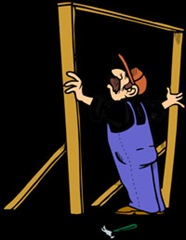
Photo credit: mariakray at Pixabay
by Debbie Burke
An author’s website is their billboard to the world. This is the one-stop site where readers, potential readers, editors, agents, and others go to learn about the author and their writing.
Social media sites owned by others can ebb, flow, and sometimes disappear altogether (remember My Space?). Or they can suspend or ban your account.
Your website is your one constant showcase as an author.
That’s why it’s important to make it as welcoming, friendly, and accessible to the broadest number of visitors.
And that includes those with disabilities.
Recently on the Author’s Guild discussion thread, the topic of ADA-accessible websites came up. Rumors had started on social media that authors could be fined if their sites weren’t accessible per standards set by the Americans with Disabilities (ADA) act.
Apparently, the source behind those rumors were individuals and possibly law firms threatening suits against authors.
As far as I can tell from my research, there is no current law requiring author websites to be ADA compliant.
The ADA does require websites and mobile apps for federal, state, and local governmental bodies to be ADA compliant.
We’re all aware of the necessity for businesses and buildings that are open to the public to meet ADA requirements, such as barrier free entrances, ramps, restroom facilities, etc. Also new construction must meet ADA standards for physical accessibility with hallways wide enough for wheelchairs, etc.
But until recently I hadn’t given much thought to online accessibility.
With increasing use of websites and apps to do everyday tasks like making travel reservations, ordering merchandise and services, applying for employment, bill paying, banking, etc., consumers need to be able to actually use those online services to take care of the business of living.
What if you have low vision or are color blind? What if you can’t read the text onscreen because of poor contrast or small fonts? What if you can’t see the color images onscreen that instruct you to click here?
Despite recent successful cataract surgery, my close vision is not good even with reading glasses. I’m frustrated with online sources that feature elaborate but undecipherable fonts. Often they feature tiny text. Worse is low contrast text on a background that’s a similar color (light gray text on dark gray background). Moving icons or videos that flash past, or other quirks can make content hard to read.
I just ran across an appealing website about wine with many gorgeous professional photos. The background image is a beautiful bunch of grapes. But…the text is 6 point font in white. Small, low contrast text combined with a busy background made it challenging to read. This otherwise stunning site was a disappointment.
If I visit an author’s site and it’s difficult to navigate, I really don’t care how cool it looks. I close the window.
When authors update their websites or create new newsletters, it’s good to be mindful of various disabilities. Here’s an article from ADA.gov with potential problems to look for and suggestions for easier accessibility. Levelaccess.com offers a free color checker test.
Website builders like WordPress offer many different themes. Maybe changing the theme can make your site more welcoming. If you publish a newsletter, review sample templates to find the most attractive and readable options for fonts, background colors, and images.
Because I’m not techie, the goal of my website has always been to make it as friendly and easy to use as possible for fellow troglodytes. I use large, easily readable fonts and bold typefaces.
While I believe the concern over possible fines or lawsuits is overblown, I also don’t want my website to turn off visitors because of issues that make it difficult for those with disabilities.
When I make future updates (or have my web guy make changes), I’ll be more conscious of potential barriers to readers.
As authors, we strive to make it as easy as possible for readers to engage with us and read our work. That starts with a website that friendly to all users regardless of ability.
~~~
TKZers: Do you have pet peeves that turn you off about a website?
Please share suggestions of how authors can make their websites friendlier.
Have a favorite site? Include a link in the comments.
~~~
 Grab Instrument of the Devil, the first book in the Tawny Lindholm Thriller series, for FREE. Offer ends soon.
Grab Instrument of the Devil, the first book in the Tawny Lindholm Thriller series, for FREE. Offer ends soon.


